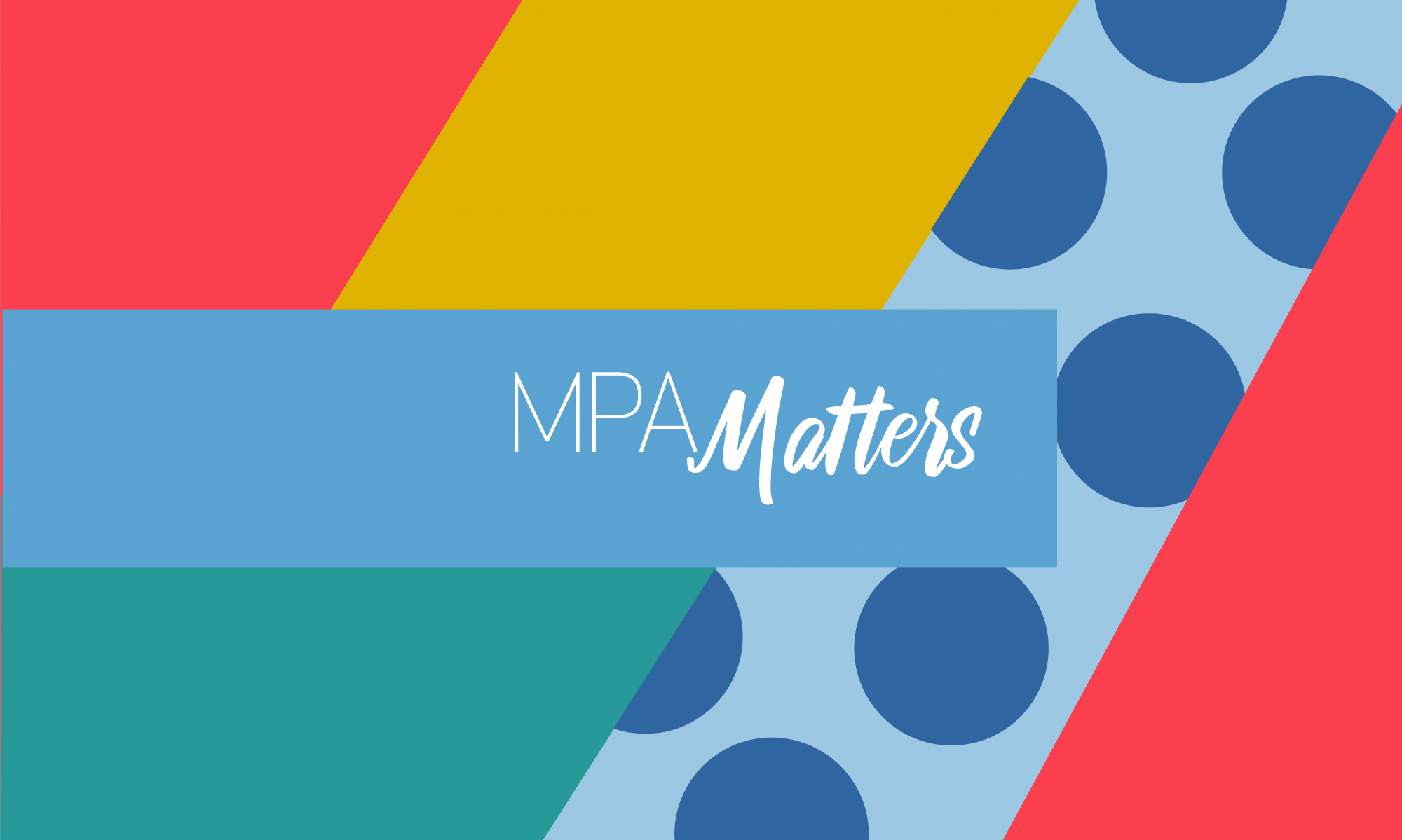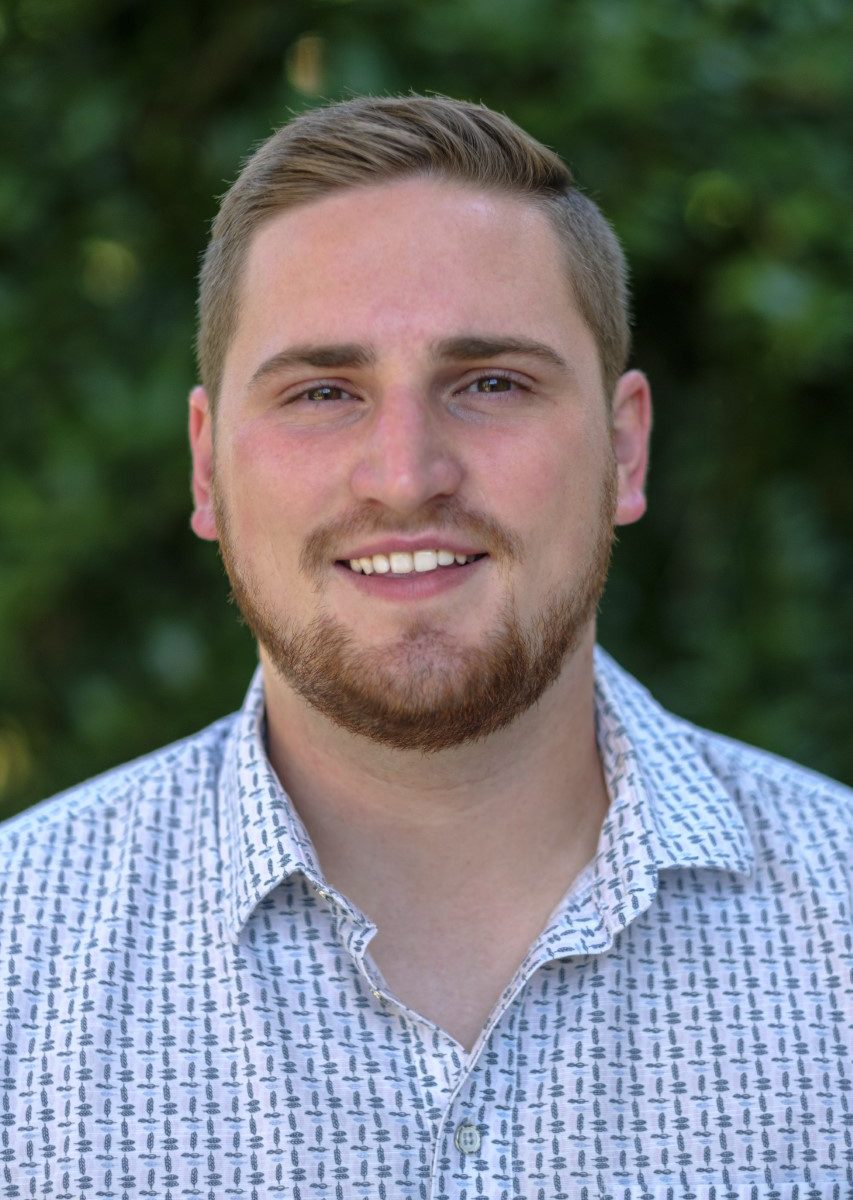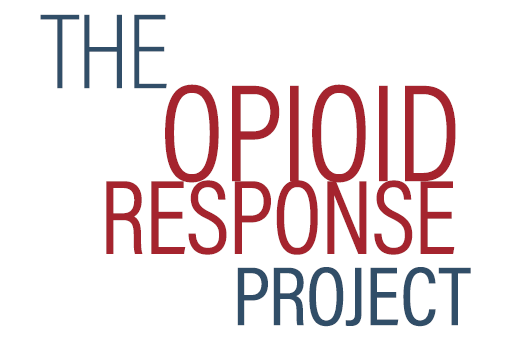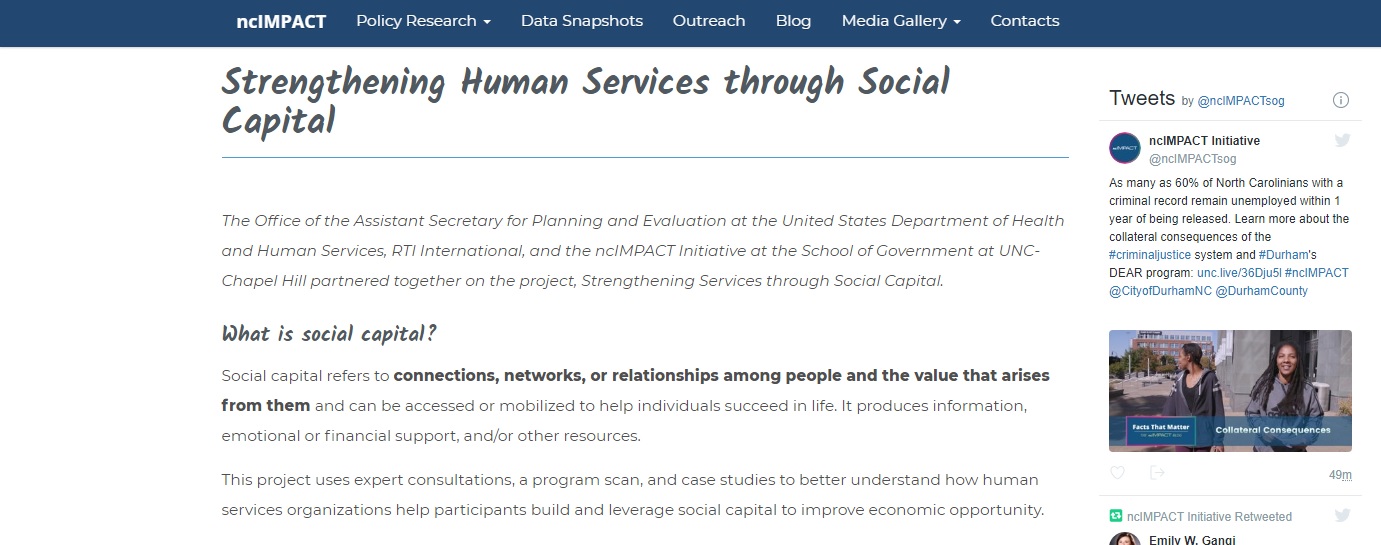 Hi Everyone,
Hi Everyone,
Is it just me or has February felt like the longest month of the year so far? Anyway, in this blog post, I want to share some insight into what students are experiencing in the MPA program right now. For the majority of us— first and second years alike— we are engaging in the fun and challenging process of job searching.
Right now, the first-year students are dedicating a substantial amount of their time to securing a Professional Work Experience (PWE). For those who are unfamiliar, a PWE is the program’s equivalent to an internship. It is a practical component of the program, where students work as full-time public administrators for a summer. Some PWE opportunities even accept students to continue working for the following year.
Searching for a PWE is an exciting and nerve-racking time for students. They are interviewing almost every week for a position but will eventually land a job that presents a new learning opportunity. One first-year student mentioned, “I’m excited to have the opportunity to apply the skills I’ve gained from my first year in the program toward my PWE.” It is interesting to see the knowledge we accumulate throughout the year playout in real time while working. Anything from actionable feedback to analyzing the organization from Bolman and Deal’s four frames can and will make an appearance.
However, since interviewing is challenging, my advice for current and future students attempting to secure a PWE is to trust the process and know your worth. Rejections will happen and they can hurt. It is okay to feel sad about a rejection. However, it is unacceptable to let that rejection define you and keep you from pursuing opportunities that excite you and help you grow! You are valid, valued, and will land a PWE that will provide many educational opportunities!
As for the second-year students, we are still working to complete our Portfolios and many of us have been applying to jobs regularly. Many of us have felt challenged in this process, especially with COVID 19 impacts. However, the challenges have not overpowered our excitement to showcase our knowledge and skillsets both in interviews and when we accept the job of our dreams.
We are also taking the time to celebrate our friends for their successes in the job search. We are very proud of Shakera Vaughan for landing a job with the Housing and Community Department in the Town of Chapel Hill, working as the Community Connections Coordinator. Additionally, a few members in my cohort have been accepted as finalists for ICMA’s Local Government Management Fellowship, which is a thrilling way for these individuals to start their local government career. As a collective, the second-year cohort is very proud of these successes and we look forward to many more. I hope to continue sharing more success stories in the near future.
Welcoming our NEW MPA students!
A couple of weeks ago, we had 22 bright and eager students begin our online MPA program, and we couldn’t be more excited to introduce them to you. With most of them averaging 10 years or more of work experience and 27% of them holding advanced degrees, we are proud to be the next step in their personal and professional journeys.
As always, we like to showcase the breadth and diversity of our cohort in terms of backgrounds, interest areas, diversity, and interests. Here are a few of their noteworthy mentions:
1 international student joining us all the way from Jakarta, India
1 Superior Court Judge from California
1 Police Lieutenant from the City of Portland, OR
4 practicing attorneys
4 health care administrators (UNC Health Care and University of Pittsburgh Medical Center, Indian Health Service, and United Network for Organ Sharing)
1 Local Government Employee Match Scholarship Recipient
5 currently working for the federal governemnt
2 Active Military
1 Marine Biology Educator
Obviously, this list is not exhaustive. We are so excited to have all 22 of you, and we promise you’re going to gain so much from this program.
Applying to grad school is a big decision in and of itself, but doing so in the midst of a pandemic and the state of our world brings a whole new level of commitment. While some might find themselves with more time to research graduate school and apply, I suspect many of us are still having a hard time focusing on a big thing amidst all of the chaos and uncertainty.
One thing is for certain, never has there been a more critical time for good public administrators and for people to believe in the power of good public administration. Over the last year, we have seen this at the state and federal levels of government with respect to the pandemic and a public health crisis and economic shutdown. And we have seen it at the local level of government with the focus on fair and equitable law enforcement and public safety issues.
So, we are thankful for all the public administrators out there doing their job well. And we are thankful to our newest MPA students for their drive, tenacity, and interest in making better communities! Good luck and welcome to the Carolina family!
A Salute to a Legacy of Public Administration
This weekend, I had the pleasure of traveling to our nation’s capital city for a few days. While in Washington D.C., I toured the monuments honoring historical figures and events and gazed at the many important buildings that offer space for decision-makers.
The most impactful moment of the trip was paying my respects to the former Supreme Court Justice, Ruth Bader Ginsburg. Her casket was on display for public viewing on the steps of the Supreme Court building. The line to walk up the steps for a closer viewing weaved back and forth along First Street for a few blocks.
Across the street from the Supreme Court building, many individuals left flowers, gifts, notes, and signs expressing their gratitude for her legacy and the difference she made in their life. While the emotions of the environment still had an element of sorrow, reading the notes and experiencing the incredible outpour of love left me with hope.
Ruth Bader Ginsburg dedicated her life to public service. She was motivated by her passion of fighting and protecting the rights of the most vulnerable. In our MPA classes, we discuss the power of public service motivation. RBG’s life and legacy is a testament to that power.
Welcome to our new ‘On-campus’ Class of 2022
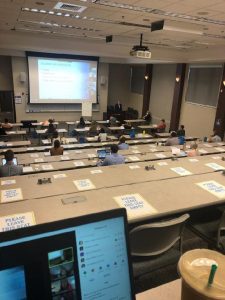
Hi again,
With the beginning of a new academic year comes new experiences and people. This is particularly true for the MPA program’s first-year ‘residential’ students (residential being in quotation marks due to the ongoing pandemic which is keeping us from being truly in-person), which is why I wanted to take some time to introduce you to this cohort.
The incoming class is one of the largest and most diverse that the residential program has welcomed in years, with 28 students joining UNC’s MPA network exemplifying various academic backgrounds and career interests. The cohort is representing 18 different undergraduate institutions including, UNC-Asheville, N.C. State University, Vanderbilt, Clemson, University of Kansas, and others. To accompany these undergraduate institutions, these individuals are bringing a wide variety of academic backgrounds to the classroom with undergraduate degrees in Political Science, Sociology, Psychology, Sport and Entertainment Management, Civil Engineering, Physics, Philosophy, and more.
While there is a large number of students joining the program from various undergraduate universities, another interesting characteristic of this class is that it contains our largest number of graduates from UNC-Chapel Hill. We have 9 students who are continuing their time as a Tar Heel in this cohort. Among the nine, 3 students are pursuing the Environmental dual degree that UNC offers. In looking at North Carolina as a whole, there are 12 additional students continuing their education within the program after receiving their undergraduate degree from an in-state institution.
Along with the rich amount of in-state representation in this cohort, there is significant number of students welcomed to the program from outside of North Carolina. Roughly a third of this cohort consists of out-of-state students. These individuals are bringing their passions from states such as Florida, Georgia, Kansas, Massachusetts, Pennsylvania, South Carolina, and Virginia.
While this semester looks a little different due to COVID-19, we are so proud of how well the first-year students are transitioning into this virtual learning environment. With most of the students averaging over three years of professional experience already, the passion and motivation for public service is tangible among this cohort. We are very happy to have these students providing insight from their experiences to make this program more enriching.
On behalf of the MPA Class of 2021, I would like to officially welcome each student of the first-year cohort to Carolina MPA. We are looking forward to providing support and getting to know each of you as we continue this year together! Remember that you have a purpose for being in this program, so let your values and passions guide you and you will make an impact!
A New Student Blogger!
Hi everyone!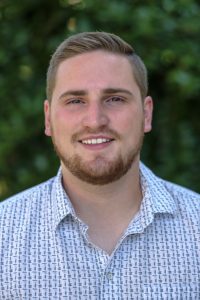
My name is Clay Fleming and I am a second-year student in the residential MPA program here at the UNC School of Government. As we continue these blogs, I hope to provide a closer look at the student experience within the program, as well as offer some insight into the incredible work others with a MPA degree are accomplishing in their communities. In my first blog, I am going to share a little about myself and the path I took to arrive here at UNC.
My journey to the MPA program was different but not too out of the ordinary. While pursuing my bachelor’s degree at Appalachian State University, I was heavily involved in a community service organization called Appalachian & the Community Together (ACT). In this organization, I helped provide community volunteer opportunities to students at Appalachian State as well as lead service trips to different communities across the country. Through my involvement, I began to realize I have a passion for serving communities.
This realization was made even clearer during my senior year, when I had the opportunity to lead a community service trip to San Francisco. The group I was leading worked with three non-profits in the Bay Area, all of which discussed working with local government to create ordinances that were mutually beneficial for the non-profit and San Francisco residents. Through witnessing the direct impact these partnerships had on the community, I realized I wanted this to be my career. The next day, I found UNC’s MPA website, read about the program’s focus on both non-profits and local government and I was sold!
Once I started the residential program last fall, I began to see all of the different avenues this degree could take me. Prior to starting the MPA degree, I never gave much thought to working in local government as a career, as I was set on working for a non-profit. However, with local government being the strong point of the program, my interests were ignited. Over the summer, I had my first authentic exposure to life working in a municipality through my Professional Work Experience (PWE) with the Town of Holly Springs. While interning there, it was incredible to see the inner workings of the government body to support residents, especially during COVID-19.
Ultimately with my MPA degree, I hope to create positive social change in the world that includes an emphasis on social equity. Whether my career leads me to local government or the non-profit sphere, I want to continue my passion for strengthening communities and serving people. I am very thankful for the opportunity to pursue this career and the support this program offers to me and my peers. I look forward to regularly updating you on various topics and happenings within public administration.
Celebrating Work and Managing Endings
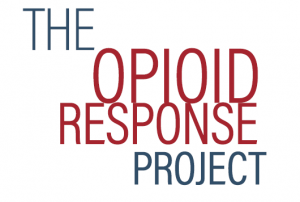
On Day 1, the public forum, things went forward nearly seamlessly in our virtual environment. SOG faculty and staff presented on collective impact, summarized two-year project, and facilitated excellent break-out sessions with team members who had expertise on topics like transportation, housing, and employment and recovery courts. There were some hiccups with the keynote speaker, Sam Quinones, the author of the highly acclaimed book Dreamland. As a journalist, he had a specific perspective of the opioid crisis, which did not always mesh with the experience and expertise of these community teams. For example, he spent over five minutes talking about how the word “addict” should be used to describe people who use drugs or who have Substance Use Disorder (SUD), despite the fact that community members in the chat attested that it was stigmatizing language. Despite these issues, the first day was a great spotlight of the project as a whole.
The second day of the forum was a teams-only event, summarizing the results of their efforts in 5-minute presentations, as well as workshops to focus on their sustainability and further work moving forward. Although there were some minor technical problems with showing some of the first presentations, these were ironed out as the day went on. Teams praised each other’s accomplishments and videos, which allowed them to make even more connections among communities using similar strategies. The teams were also able to use breakout rooms to discuss public values, collective impact, sustainability, and more, and then debrief with SOG faculty as facilitators. It was not the ending that partners may have wanted; their work, and the forum itself, were greatly complicated by the COVID-19 pandemic. However, it seemed like a fitting celebration of the teams themselves, one of the ways that ncIMPACT is managing the end of such a momentous and publicly-involved project.
Creating a Community Resource
As my PWE enters its final few weeks, I have been working on finishing several long-term projects, including the presentations for the Opioid Response Project that I spoke about last week. My other major product for that project has been the Online Resource Library that will be put up on its current microsite, and eventually the permanent website that will launch sometime in late fall or early winter. This library contains well over a hundred resources, in ten different subject areas compiled over the course of the two-year project by multiple participants, including past research assistants. Its purpose is to codify the resources created and shared by our community teams, as well as ones that would assist communities in undertaking a collective impact-style response to the opioid crisis. Although there is a guidebook in production that specifically focuses on the implementation of a collective impact project, these resources are substance use-specific, and can assist organizations who are in any stage of addressing opioids in their communities.
While working on this product, there have been many thumbs in this metaphorical pie. Since this project involved many staff and faculty members from across the SOG, it has a series of subcommittees, including one for the website. But because the project is being managed through ncIMPACT, there is an input and review process there as well. This means that I have had to manage the expectations and ideas of many individuals as I create this product, including people who have not had the chance to see the library or been involved in its compilation. Although this has at times made creating this resource more difficult, it has also raised useful questions about its purpose, format, and realistic usefulness in the wider community. For example, these conversations led to the decision to add a brief context statement to each resource and category, so that users do not have to actually click on or read the resource in order to see if it is useful to them. This made the library a much more time-intensive product for me, but will also make it much more helpful to the public audience it is meant to serve.
Creating products for a general audience is something that I have learned much more about during this PWE experience. I have been involved in academia for almost seven years now, and see it as my future career. My perspective, writing, and priorities often reflect that bias. Although I realize the importance of public-focused work, I have traditionally felt uncomfortable creating resources for this audience. How was I supposed to know what people wanted or needed? How was I, with an outsider’s perspective, going to be able to create something that would assist communities in a real, tangible way? Working with ncIMPACT has given me a much more nuanced perspective of making research and project results accessible to those who they affect most. I still know that I have an outsider’s perspective, but now I am able to speak with professionals and clients to understand how resources like this one can best support them. I am also more able to put myself into the shoes of others, and think critically about how to most efficiently communicate this information to a non-academic audience. Being able to learn more about the crossroads of policy, research, practitioners, and communities is helping me grow as a professional, and put the “social” in social worker and the “public” in public administrator.
Working with Clients during Covid-19
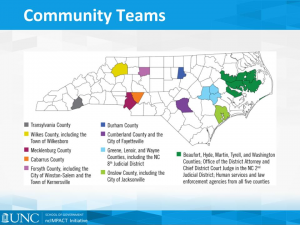
In theory, helping the teams create a 5-minute, multimedia presentation would have been fairly easy before COVID. They likely would have visited Chapel Hill during the summer for meetings, and I could have set them up for audio or video recording with professional equipment at the SOG. Worst case scenario, I may have had to make a road trip to the communities in order to co-create the presentations. However, COVID-19 has made client relationships much more complicated, especially in communities that may lack strong broadband access or public health infrastructure. Many of the individuals and organizations in the ORP are doing double duty as COVID-19 contact tracers, care providers, or policymakers. They are often extremely busy, even overwhelmed, with pandemic-related work, which makes finding time to meet difficult.
Additionally, travel restrictions and bans on in-person meetings have made all of our work on the presentations virtual. Instead of a day’s worth of recording, I have to schedule weeks of time in which I provide drafts to project managers and teams, they record audio, and I put the final products together. This has made working with clients much more difficult than it likely would have been without the influence of coronavirus. However, the teams have also expressed their gratitude for my help during this time, as they are overworked and already coping with drastic changes to in-person programs and services, including drug courts, syringe exchanges, and medical care and counseling. Although the pandemic might have made it more complicated and time-consuming, it has also taught me how to work with diverse clients virtually, and has thereby been a valuable professional experience both now and in the future.
Equity and Data-Driven Policy
Equity is a word that is floating around more in media coverage and professional discussions as Black Lives Matter protests continue this week. There are calls for dramatic policy changes to local, state, and federal governments around the issue of policing, but also other areas that can dramatically improve the lives of the historically oppressed – education, employment, social programs, and housing among them. In connection with my post last week, about making systemic change, I chose to write about a tool that can assist policymakers in creating more equitable policy, as well as an example of ncIMPACT’s current work in this arena.
One solution in the equity toolbox is to rely on data-driven policy in order to concentrate resources in the most needed areas, rather than relying on tradition or the judgment of those in power. This data does not just consist of surveys or graphs, but also listening to communities and respecting their expertise and self-determination in order to create policies and programs that fit them and their needs. Although this is often more time-intensive, policy made without the substantive participation of key stakeholders is often less effective, and may not have the intended outcomes for which it was created. ncIMPACT’s study designs often rely on mixed-methods and participatory research in order to discover needs and pilot solutions to equity-related problems, and I am fortunate to be working on several of them this summer.
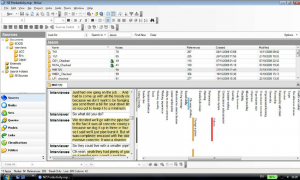
One such project is the survey that ncIMPACT conducted with local government officials to discover the impact of COVID-19 on their organizations and communities and see how the School of Government can best respond. I will be completing the qualitative analysis of several open-ended questions for the 200 or so respondents from 89 NC counties. This survey will give us the chance to measure, in semi-real time, the impacts of COVID on a state-wide scale, as well as in regions with diverse economies and risk factors for the pandemic. Being able to complete work that will likely directly impact the SOG’s programs and products during this time is a very fulfilling professional experience. Although it may not directly be related to racial equity or police reform, COVID is already having disparate impacts on communities of color, which is likely to continue even after a vaccine is available. Understanding how local governments are responding, and what support they need, is a unique role the SOG can play in mitigating the negative effects of the pandemic and making North Carolina a more equitable place.
Project Management
Memorial Day weekend was a welcome break from a busy two weeks at my PWE. One of ncIMPACT’s staff members is ill, changing our team’s work flow. Suddenly, an important work product for the social capital project needed support, and it fell on my shoulders to complete a draft of a literature review in just a couple of days. I also picked up other responsibilities on both the social capital and EITC project which required me to attend an additional series of meetings, pulling my time and attention in multiple directions as we worked to complete the review. I felt not only the pressure of deadlines, but also pressure to step up as a new part of a small team and assert myself as an organizational representative.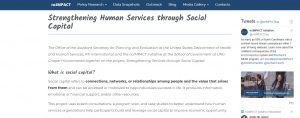
On Thursday of last week, I was talking to a friend who asked me if I was enjoying my internship. I immediately launched into an explanation of all the Zoom meetings I had, the deadlines I was up against, and the stress I was feeling because of it all. I waxed poetic about the additional stress of COVID-19, and how I hadn’t even had the chance to meet my coworkers because of it. After letting me vent, he said, “Okay, but are you enjoying it?” I paused for the first time in several days to actually think about that question. Sure, I was busy and maybe even a little overwhelmed by trying to adapt to my new role in the team so quickly. But did that mean that I wasn’t enjoying my time with ncIMPACT? Did it mean that maybe I was in the wrong place, at the wrong time?
Despite the stress of last week, reflecting on my experience allowed me to realize that this is exactly where I want to be right now, COVID aside. My supervisor and field instructor supported me both personally and professionally, including letting me flex my hours to work longer on some days so I could leave early Friday for a weekend away. Anita, ncIMPACT’s director, trusted me enough to let me attend an outward-facing meeting with clients as the only ncIMPACT representative because of my performance in earlier project meetings. And research partners valued my input during our interactions that they were responsive to a proposal I made to potentially augment a study design to collect key informant data, since COVID was affecting our ability to collect it from community members in a timely fashion.
Having more on my plate can be, rightfully, a source of worry. However, it really means that I am being allowed to dig in to the content and management of projects, meaningfully contribute to work, and grow as a social worker and public administrator. Being a part of a team that is as invested in my development as they are the outcomes of my work has been invigorating and encouraging. I can’t wait to see what else I’ll get to sink my teeth into this summer.
